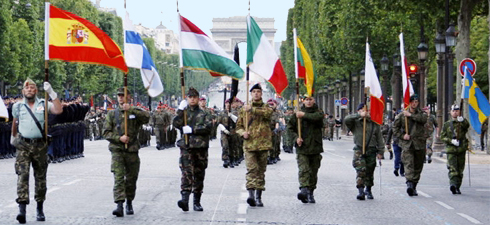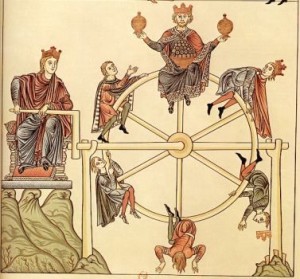
Intended to spotlight some of the weaknesses of the modern Western militaries, this book was written in 2014-15. Judging by publicly available material, however, during the years that have passed since then many of the problems have become worse rather than better. Consider the following.
1. Subduing the Young
“Anxiety and depression [are] becoming more common among [American] children and adolescents, increasing 27 percent and 24 percent respectively from 2016 to 2019. By 2020, 5.6 million kids (9.2%) had been diagnosed with anxiety problems and 2.4 million (4.0%) had been diagnosed with depression. About 5 million kids also experienced behavior and conduct problems in 2020, a 21 percent increase from the previous year.”[i]
“39.2% of [British] 6 to 16 year olds had experienced deterioration in mental health since 2017.”[ii]
“Mehr-psychische-Erkrankungen-bei-Kindern-und-Jugendlichen,” in Deutschland.”[iii]
2. Defanging the Troops
“The U.S. and NATO exit from Afghanistan may seem simply an episodic defeat. In a broader context, however, the Afghan withdrawal adds to a series of U.S. failures, from Lebanon to the Arab Spring, Iraq, Somalia, Syria—all these adventures ended badly, and the situation left behind was worse. We find ourselves today with the same security problems we had 20 years ago.”[iv]
“In Berlin and other German cities, some Bundeswehr personnel say they prefer not to wear their uniform when traveling to and from work, in order to avoid aggressive stares and rude comments. And in Potsdam, a regional capital near Berlin [which, historically, has been closely associated with the Prussian military], local politicians have been debating whether it’s appropriate for city trams to carry recruitment advertisements for the Bundeswehr.”[v]
Last time my wife and I went to Gatow, the Luftwaffe museum near Potsdam, we were the only visitors. With Ukraine in flames, let’s hope that such attitudes at any rate are going away.
3. Feminizing the Forces
In Finland, we are told, “conscription was opened to women on a volunteer basis” [sic!!!].[vi]
“The [Norwegian] military women in our study reported physical illness and injuries equal to those of military men, but more military women used pain relieving and psychotropic drugs. More military women aged 20–29 and 30–39 years reported mental health issues than military men of the same age. In the age group 30–39 years, twice as many military women assessed their health as poor compared to military men. In the age group 40–60 years, more military women than men reported musculoskeletal pain.”[vii]
“Over 7,000 U.S. service members… have died in the post-9/11 wars in Iraq, Afghanistan, and elsewhere” (as of July 2021).[viii] Now Women form about 16 percent of the U.S military, but only a little under 3 percent of those killed in action. Yet there are proportionally more female officers than male ones.[ix] Clearly, when it comes to gaining a commission women, very few of whom engaged in combat, have an advantage over men, many more of whom do.[x]
Compared with their male colleagues, female soldiers have it easy; less exposure to enemy bullets, less strenuous training, less hazardous work, various measures intended to help them cope with pregnancy and childcare, etc. American military women, unlike many civilian ones, are regularly screened for both physical and mental health. Nevertheless, we are told, “women in [the American] military more than twice as likely to die by suicide as Civilians.”[xi]
4. Constructing PTSD
By one 2020 study, “83% of all US veterans as well as active duty service men and women have experienced PTSD since the 9/11 attack, as a result of their military service.”[xii] Nevertheless, to this day no one has been able to define just what PTDS is, what causes it, who is more (or less) susceptible to it (and why), how it should be treated (assuming, indeed, that it is a medical problem at all), and so on. Other problems associated with it are overuse, overlap with other psychological problems and, last not least, the very real danger that, turned into a political issue, it will lose any scientific meaning it may have; which, as this volume has argued, in Germany it did.
Statistics on the prevalence of PTSD among military personnel do not show that the problem is getting worse. On the other hand, it is not getting better either.
5. Delegitimizing War
Some people hold that killing is a worse sin than allowing oneself to be killed. However, that only applies to individuals. Those responsible for the lives of others cannot afford to adopt it; for them, in fact, doing so is a crime. Now that any illusions about the future disappearance of war (e.g. F. Fukuyama, “The End of History,” 1989) have themselves disappeared, that remains as true as ever.
Conclusion: Hannibal intra Portas
We live in a period when life without terrorism, some of it internal, some international, has spread to the point where it has become almost unimaginable. True, a look at the statistics will show that, globally speaking, the number of casualties due to terrorism has not increased over the last decade.[xiii] However, measures taken to prevent it a certainly have. Not a port, not an airport, not a power station, not a mine, not a large-scale installation anywhere that is not being protected against it. Sometimes successfully, but perhaps more often not.[xiv]
Finally –
In 2014-15 American troops were still holding out in Afghanistan and Iraq and French ones, in Mali. Now, having achieved absolutely nothing, they are all gone. Meanwhile major war has broken out in Europe—the very Europe which for decades on end, was widely regarded as so peaceful as to be almost completely war-proof.
Need I say more?
[i] Georgetown University Health Policy Institute, Research Update: Children’s Anxiety and Depression on the Rise,” 24.3.3022, at https://ccf.georgetown.edu/2022/03/24/research-update-childrens-anxiety-and-depression-on-the-rise/
[ii] The children’s Society, “Children’s Mental Health Statistics,” at https://www.childrenssociety.org.uk/what-we-do/our-work/well-being/mental-health-statistics.
[iii] www.aerzteblatt.de/nachrichten/124350/, 3.6.2021.
[iv] S. Pontecorvo, “How Western Errors Let the Taliban Win in Afghanistan,” 2.10.2022.https://foreignpolicy.com/2022/10/02/kabul-airlift-taliban-win-afghanistan/
[v] M. Karnitschnig, “Germany’s Soldiers’ of Misfortune,” Politico, 15.2.2019, at https://www.politico.eu/article/germany-biggest-enemy-threadbare-army-bundeswehr/
[vi] YLE News, 4.11.2021, at https://yle.fi/news/3-12169597.
[vii] BMC, “BMC Women’s Health,” 17.10.2019, at https://bmcwomenshealth.biomedcentral.com/articles/10.1186/s12905-019-0820-4.
[viii] Watson Institute of International and Public Affairs, “Costs of War,” at https://watson.brown.edu/costsofwar/costs/human/military/killed
[ix] See Council on Foreign Relations, Demographics of U.S Military,” 2020, at https://www.cfr.org/backgrounder/demographics-us-military.
[x] See, for the figures, “United States Military Casualties of War,” at https://en.wikipedia.org/wiki/United_States_military_casualties_of_war.
[xi] W. Huntsberry at https://voiceofsandiego.org/2022/07/25/women-in-military-more-than-twice-as-likely-to-die-by-suicide-as-civilians/
[xii] Cumberland Heights, PTSD, at https://www.cumberlandheights.org/blogs/ptsd-statistics-veterans/.
[xiii] See H. Ritchie and others, “Terrorism,” 2022, at https://ourworldindata.org/terrorism#how-many-people-are-killed-by-terrorists-worldwide.
[xiv] P. Knoope, “20-Year Fight against Terrorism Proves a Costly Failure,” Clingendael Spectator, 6 September 2021, at https://spectator.clingendael.org/en/publication/20-year-fight-against-terrorism-proves-costly-failure






